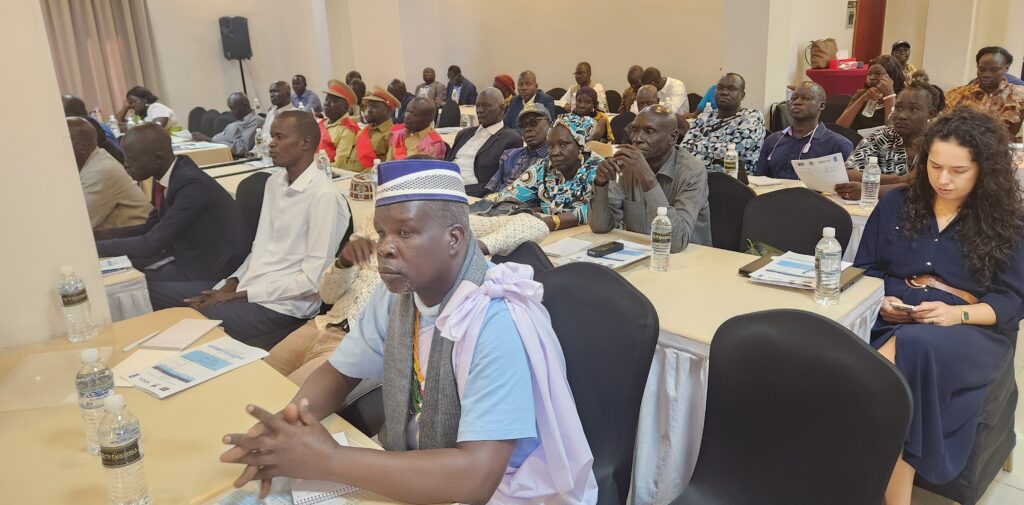A two-day regional workshop bringing together traditional leaders from several South Sudanese states to review grassroots peace efforts and discuss their role in upcoming national processes opened in Juba on Tuesday.
The forum, organised by the U.N. Development Programme (UNDP) with the Ministry of Peacebuilding and facilitated by the National Council of Traditional Authorities (COTAL), aims to assess previous resolutions on peacebuilding and outline new strategies ahead of constitution-making, elections and transitional justice.
Prince Tadeo Mario Sasa, Prime Minister of the Azande Kingdom and COTAL Secretary-General, said the meeting would evaluate progress made since 2023 and identify priorities for 2025. He said traditional leaders are expected to help mobilise communities and ensure public views are reflected in national decisions.
“Traditional leaders will play a major role in taking the message to the grassroots and mobilising people to participate,” he said.
Sasa said customary mediation remained key to resolving local disputes and reducing reliance on external interventions.
UNDP Peacebuilding Advisor Natacha Kunama reaffirmed the agency’s support for strengthening traditional authorities, calling them “the backbone for peace and reconciliation” in South Sudan.
She noted that earlier engagements produced 21 resolutions aimed at restoring traditional leadership roles and improving inclusivity for women and youth.
She urged participants to turn their discussions into action, citing displacement, climate pressures and inter-communal conflict as ongoing challenges.
Pia Philip Michael, Undersecretary in the Ministry of Peacebuilding, told the workshop that traditional authorities remained central to stability in communities and would outlast shifting political structures.
“Governments will come and go, but traditional leaders will remain forever,” he said, urging chiefs to prioritise mediation, promote women’s participation and help prepare communities for national processes.
He warned that elections “should not divide” communities and said leaders would be judged by how their people fare under their guidance.




